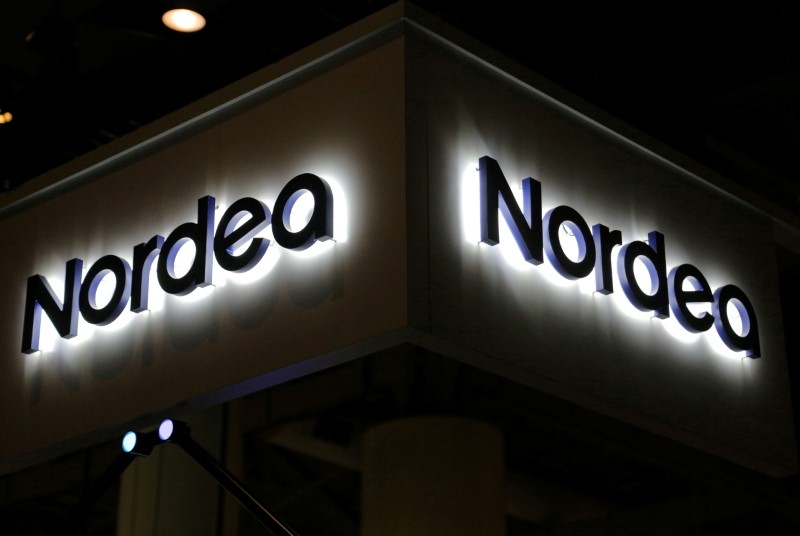By Essi Lehto and Johan Ahlander
HELSINKI/STOCKHOLM (Reuters) - Finland's Nordea and Sweden's Swedbank reported higher earnings for the third quarter on Thursday as banks across the region recovered strongly from the impact of the pandemic and shifted excess capital to shareholders.
Helped by the rollout of vaccines, Nordic banks like their peers elsewhere in Europe have benefited from rising corporate and consumer activity while a glut of mergers and acquisitions (M&A) and initial public offerings (IPOs) has yielded rich pickings for their investment banking arms.
After forecast-beating earnings from Sweden's SEB and Handelsbanken this week, the region's biggest lender Nordea saw its quarterly operating profit rise to 1.27 billion euros ($1.48 billion) from 1.09 billion a year ago, in line with market expectations.
"We have entered a new phase of recovery from the pandemic and, as a bank, we have done so from a position of strength," Nordea Chief Executive Frank Vang-Jensen said in a statement.
Meanwhile, Swedbank, Sweden's oldest retail bank, said its net profit rose to 5.50 billion crowns from 5.26 billion a year earlier, beating analysts' expectations of 5.10 billion in a Refinitiv poll.
"The quarter has been characterised by a gradual return to the new normal," Swedbank CEO Jens Henriksson told reporters. "We see a strong recovery, not least in Sweden."
Capping off the slew of banking earnings, Norway's largest bank, DNB, reported its best ever third-quarter earnings and said it would now make a dividend payment for 2020.
Andreas Hakansson, banking analyst at Danske Bank, said Nordea's profit was in line with expectations but slightly lower on important income lines such as net interest income and commission income.
"So from that point of view it is perhaps a little weaker than expectations," he said. "Swedbank beat the expectations on some of the important lines and I think the share will be traded up on that."
Worries about souring debts due to the pandemic have rapidly subsided for the banks while financial regulators have relaxed temporary curbs on shareholder payouts, helping drive strong gains for stocks across the sector.
On top of a 0.72 euro dividend paid out in October, Nordea said it would distribute excess capital to shareholders by starting to buy back its own shares from Oct. 22 at the earliest.
Nordea also said it expected to apply for approval from the European Central Bank for another buyback programme in early 2022.
Its Nordic rivals have also ramped up payouts with SEB unveiling a fresh dividend and the beginning of share repurchases earlier this week.
A lingering uncertainty for some of the region's banks remains their efforts to keep a lid on costs.
In July, Nordea raised its 2021 cost guidance to about 4.6 billion euros, having previously said it would be below that figure, due to the acquisition of Nordea Finance Equipment and higher staff payouts due to a strong performance in the quarter.

The Helsinki-based lender stood by its cost outlook on Thursday as did Swedbank, which is also burdened by elevated legal spending stemming from money laundering investigations in its Baltic business in recent years.
($1 = 0.8581 euros)